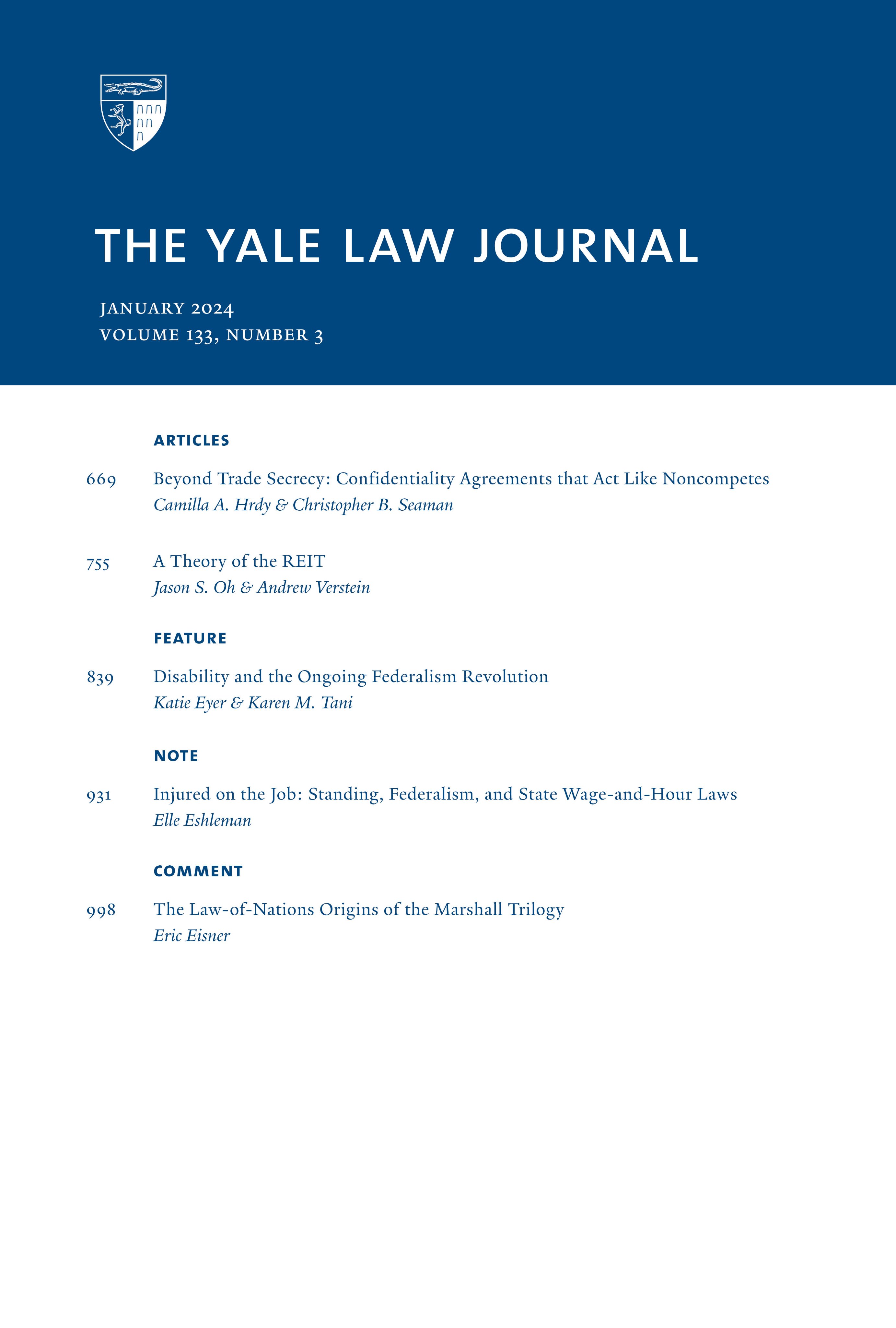Buying an Audience: Justifying the Regulation of Campaign Expenditures that Buy Access to Voters
IF 5.2
1区 社会学
Q1 LAW
引用次数: 0
Abstract
This Comment suggests a new constitutional approach to the regulation of political expenditures. The approach pushes beyond the question of whether political expenditures are more like "speech" or more like "property"' and instead focuses on which types of expenditures fit into each category. Some expenditures, but not all, are necessary to create speech. These "speechenabling" expenditures cannot be meaningfully disentangled from the communication they make possible. Other expenditures, however, provide something of value aside from the speech itself as an incentive for individuals to listen to the speech. The classic example is expenditures on advertising, which reach listeners or viewers because they wish to consume the content with which the advertising is packaged. These "audience-buying" expenditures function as property and consequently deserve less protection. Courts should uphold campaign finance regulations that are closely tailored to protecting speech-enabling expenditures while regulating audience-buying expenditures in order to enhance political equality. Individuals and organizations with access to financial resources to buy advertising can offer audiences an attractive exchange: viewers need not pay for television programs they wish to watch because they also watch the commercials packaged along with them. Advertisers usually do not pay their audience directly, but instead pay intermediary media organizations, which in turn offer audiences content they value. Though indirect, this method of providing an incentive is functionally the same as offering a DVD with entertaining content or anything else the audience values as an incentive to view the advertisement. Unlike those who can afford to advertise, those with fewer resources can reach only those who are interested in receiving their收买观众:为收买选民的竞选支出监管辩护
这一评论建议对政治开支的管制采取新的宪法办法。这种方法超越了政治支出更像“言论”还是更像“财产”的问题,而是关注哪种类型的支出适合每种类别。一些支出,但不是全部,是创造言论所必需的。这些“让人说不出话来”的开支无法与它们所促成的交流有意义地分离开来。然而,除了演讲本身之外,其他支出还提供了一些有价值的东西,作为激励个人听演讲的动机。一个典型的例子是广告支出,因为听众或观众希望消费包装广告的内容,所以广告支出就会到达听众或观众那里。这些“购买观众”的支出就像财产一样,因此不应该受到太多保护。法院应该支持那些严格针对保护言论支持支出,同时规范观众购买支出以促进政治平等的竞选财务规定。有财力购买广告的个人和组织可以向观众提供一种有吸引力的交换:观众不需要为他们想看的电视节目付费,因为他们也可以观看附带的广告。广告商通常不直接向受众付费,而是向中介媒体机构付费,中介媒体机构反过来向受众提供他们看重的内容。虽然是间接的,但这种提供激励的方法在功能上与提供带有娱乐内容的DVD或其他任何观众认为可以作为观看广告的激励的东西是一样的。与那些有能力做广告的人不同,那些资源较少的人只能接触到那些有兴趣接收他们的广告的人
本文章由计算机程序翻译,如有差异,请以英文原文为准。
求助全文
约1分钟内获得全文
求助全文
来源期刊

Yale Law Journal
LAW-
CiteScore
4.50
自引率
6.20%
发文量
0
期刊介绍:
The Yale Law Journal Online is the online companion to The Yale Law Journal. It replaces The Pocket Part, which was the first such companion to be published by a leading law review. YLJ Online will continue The Pocket Part"s mission of augmenting the scholarship printed in The Yale Law Journal by providing original Essays, legal commentaries, responses to articles printed in the Journal, podcast and iTunes University recordings of various pieces, and other works by both established and emerging academics and practitioners.
 求助内容:
求助内容: 应助结果提醒方式:
应助结果提醒方式:


